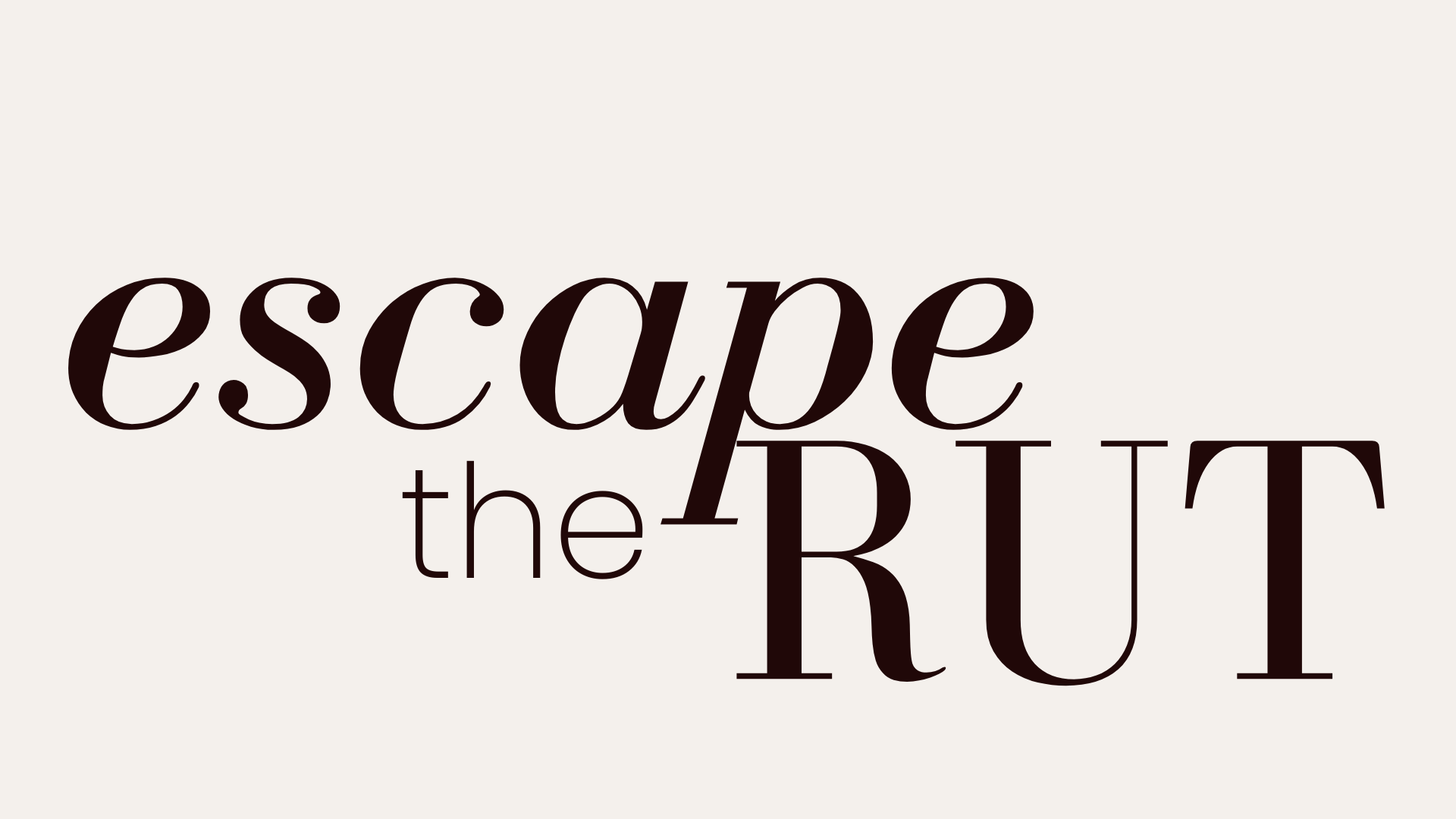7 (More) Habits Keeping You Stuck (Part 2)
Are you where you want to be? If not, then ask yourself if any of these 7 habits are preventing you from moving forward to your full potential.
Could your daily habits be what’s keeping you stuck? Sometimes pushing your life closer to your vision isn’t about quantum leaps. But, rather about auditing your tiny habits. The seemingly insignificant, if left unevaluated, can have a significant impact on your ability to achieve your goals.
Socrates famously said:
"The unexamined life is not worth living.”
Following Part 1 last week, I’m sharing Part 2 of the habits that might be keeping you stuck.
Habit #1: Not Choosing Your Words Wisely
Neuro-linguistic programming (NLP) is a discipline that focuses on using your thoughts, behaviours and language patterns to achieve your desired goals. The strategies used consider the capability and constraints of our conscious and subconscious minds.
NLP encourages you to reframe your negative self-talk. When you tell yourself “I will fail”, your conscious mind creates mental images of failure. Like if you heard the words “green tree”. You can’t help but see a green tree. Using your mind’s same capability, your thoughts can be reframed. Saying “I am capable of success” creates these neural pathways. Signalling to your mind the path to follow.
According to NLP, it’s also important to understand any limiting belief is a limiting decision. An event likely preceded this decision. You’re not your beliefs. You decided to have the belief. So, next time you tell yourself a limiting belief, ask yourself “When did I make that decision?” And work to reframe it. See my previous blog for more on overcoming your limiting decisions.
Habit #2: Mindless Music
I grew up in a music-obsessed household. I myself have a most eclectic taste and an enduring appreciation for music. As a child, I’d print out lyrics and study them, fascinated by the storytelling at play. I still am.
I, of course, still love some mindless music. But, I have a time and place for it. Otherwise, I’m much more intentional about the music I allow into my day-to-day life.
With the power of words in mind, how much attention do you pay to the music you consume? What words are you allowing to infiltrate your subconscious mind? How is this helping, or hindering you?
In 2019, a study published in the journal, Applied Cognitive Psychology, concluded that listening to music while you work “significantly impairs” creativity. But, this wasn’t true for all music. “Happy” music, defined as upbeat and stimulating classical music, improved performance for divergent thinking. This means it helped participants make unique associations and links. And to transform information into unexpected forms - to essentially think outside of the box.
Several other studies support the mental and physical benefits of classical music. This includes research from Oxford University which showed that listening to classical music can reduce blood pressure.
This is why classical music is now my go-to especially when I’m working or learning a language.
Habit #3: Mindless Commute
How much time do you spend commuting every day? How much time is that per week?
The Real Australian Commute Report 2022 estimated the average Australian’s commute takes 54 minutes per day (33km), costing an average of $20 per day.
By my calculations, that means:
= 54 minutes commuting per day.
= 4.5 hours (based on a five-day working week) commuting per week.
= 216 hours (based on 48 weeks of the year) commuting per year.
= Approximately 5 (40-hour) work week equivalents commuting per year.
The report also showed getting from A to B for work costs the average commuter approximately $4,000 annually.
Do your own calculations to work out what your annual commute is costing you in time and money. Then, consider how you can make the best use of your time.
The legendary Zig Ziglar coined the term ‘automobile university’, for making the most of your commute.
Consider swapping out mindless (and usually pointless) radio banter for a rewarding podcast in your niche interest, audiobooks or learning a language. Or maybe even silently allowing your thoughts, learnings and ideas to mentally upload.
Habit #4: Sticking to Your Comfort Zone
Do your days and tasks in most ways look exactly the same every day? Or are you constantly and intentionally experimenting?
I was first introduced to the idea of ‘zooming’ in Seth Godin’s Survival is Not Enough.
In a brilliant analogy of business to science and nature, Godin proposes a brand’s survival - or better yet, its ability to thrive - is about evolving. And to evolve, you must overcome your innate anti-change reflex.
Godin proposes the best way to do this is to ‘zoom’. Which is developing an appreciation of change. This is more than learning to manage change. But rather, creating a passion for continuous, even daily experimentation. Making change tiny and painless.
Instead of mindless repetition, experiment. Make 1% improvements in your work every day. At the very least, try new things; Take a different route to work. Switch the station or podcast. Pick up a different style book. Try a new food. Meet with someone you normally wouldn’t.
While many personal brands and businesses stay stagnant, you would have learned to thrive.
Habit #5: Letting Your Negativity Bias Take Over
Dr Rick Hanson famously said:
“The mind is like Velcro for negative experiences and Teflon for positive ones.”
As humans, our primitive survival instinct has been hardwired to look for the negative. This has helped ensure our survival. What’s alarming though, is that even in our modern-day lifestyle ,our propensity to scan for the negative is overwhelmingly disproportionate. According to research by the National Science Foundation, 80% of your thoughts every day are negative. Just think about how you’ve dwelled on negative events, people, feelings, criticisms and potential negative results, instead of the positive.
Instead, train your mind to scan for the positive. This is why keeping a daily gratitude journal is so highly recommended. By simply writing down three things you’re grateful for each day, your brain starts to scan for the positive in your daily life.
Habit #6: Learning for Short-term Gain Only
Are you only learning what you have to? Reading what you need for work or a course and nothing more. Watching assigned videos or just enough to not look ignorant about whatever project your teacher or boss has you working on? This is a short-sighted approach to learning. You’re learning for short-term gain. It’s a stick-and-carrot approach to your personal and professional development.
Instead, learn for long-term gain. Learn even though no one is testing you. Watch YouTube videos, listen to podcasts or read blogs and articles. Or, one of my personal favourites - read books.
As shared in my earlier blog, University of Sussex research showed that compared to TV watchers, readers are said to have more knowledge and have better analytical skills, improving their judgement and problem-solving skills. Books, magazines and written text also use more unique words than television. This helps improve your vocabulary and communication skills.
Reading also builds your social skills. It creates neurological pathways relating to characters. And they remain after you put the book down. This improves your people skills and emotional intelligence.
Habit #7: Sleep Deprivation
I appreciate that this may be next to impossible for parents of young children. But, if you can control your sleep patterns, ask yourself if you’re getting enough sleep.
Your brain uses sleep to upload your learnings, create new neural pathways and prepare for the day ahead. It gives new meaning to the saying ‘solving a problem in your sleep’. Research has shown that sleep supports problem-solving and creativity.
Your brain is capable of more than you may realise. Ditch the unhealthy hustle-at-all-costs culture. Let your brain do the work for you while you sleep.
Take a microscope to your tiny habits. They could just be what’s having a big impact. But, with tiny changes, you could see huge results toward your vision.





